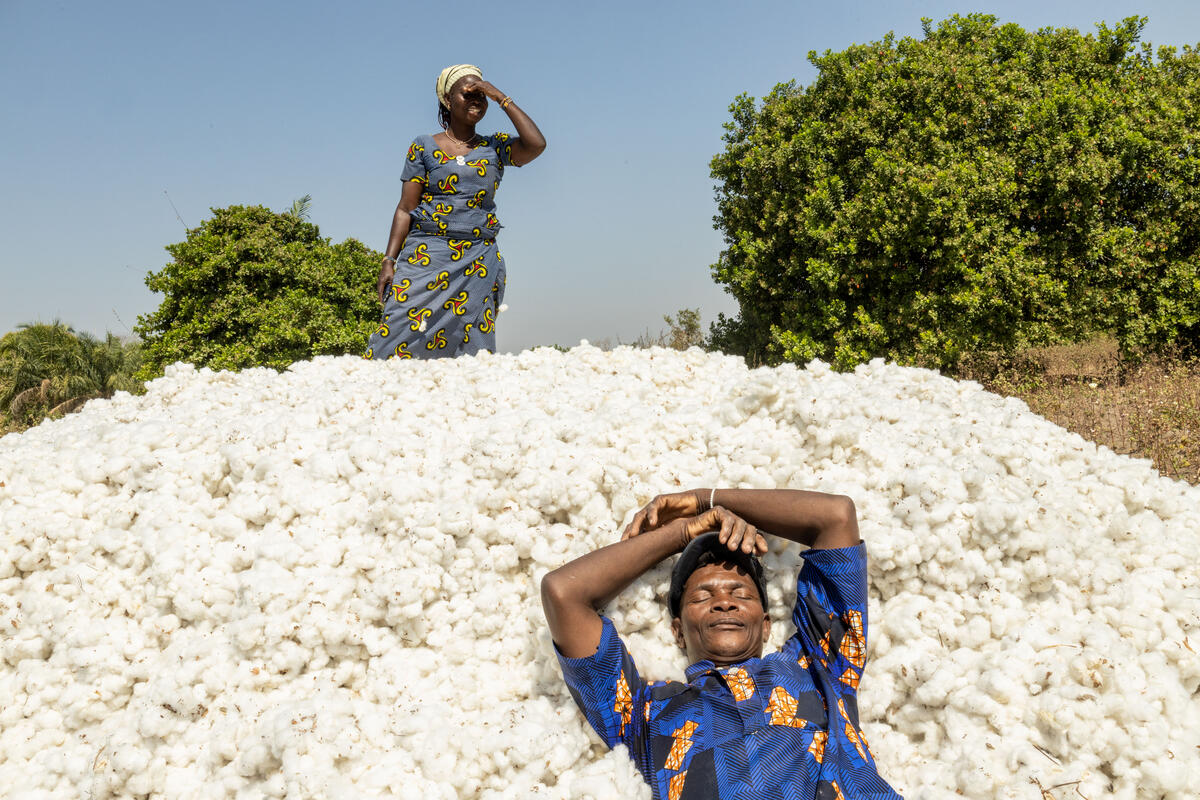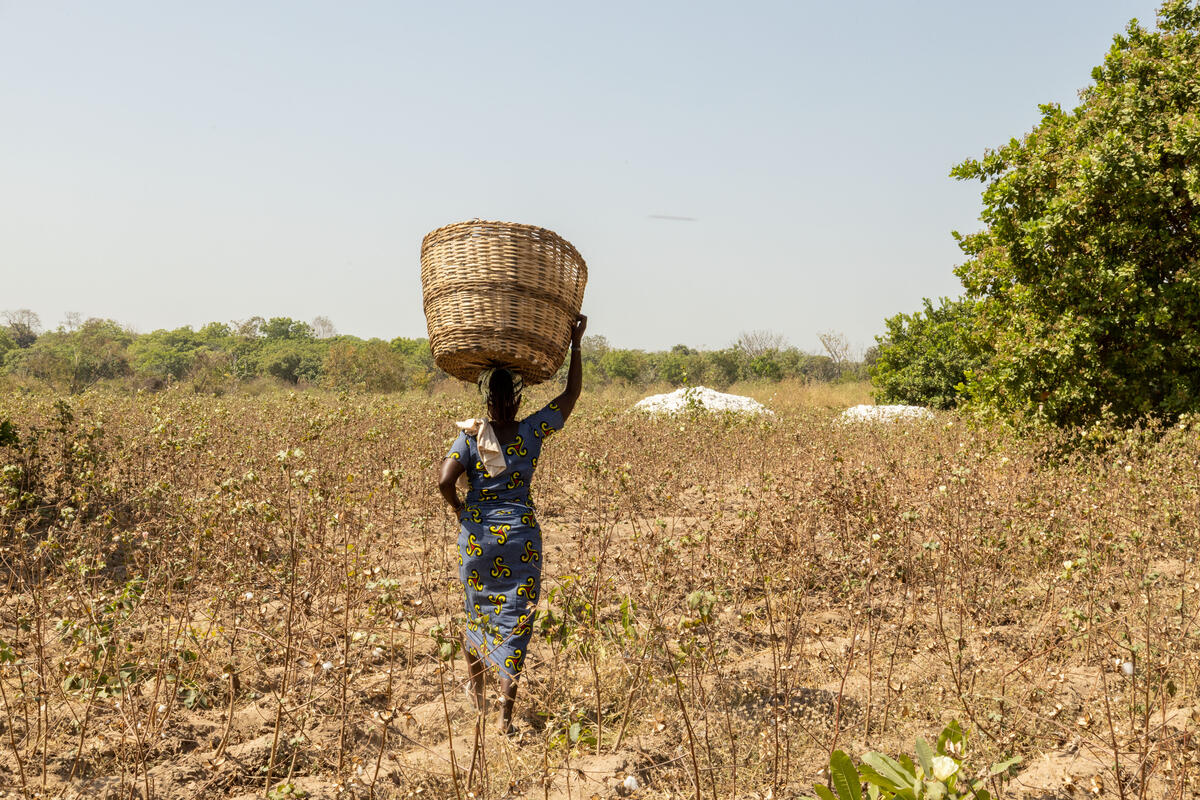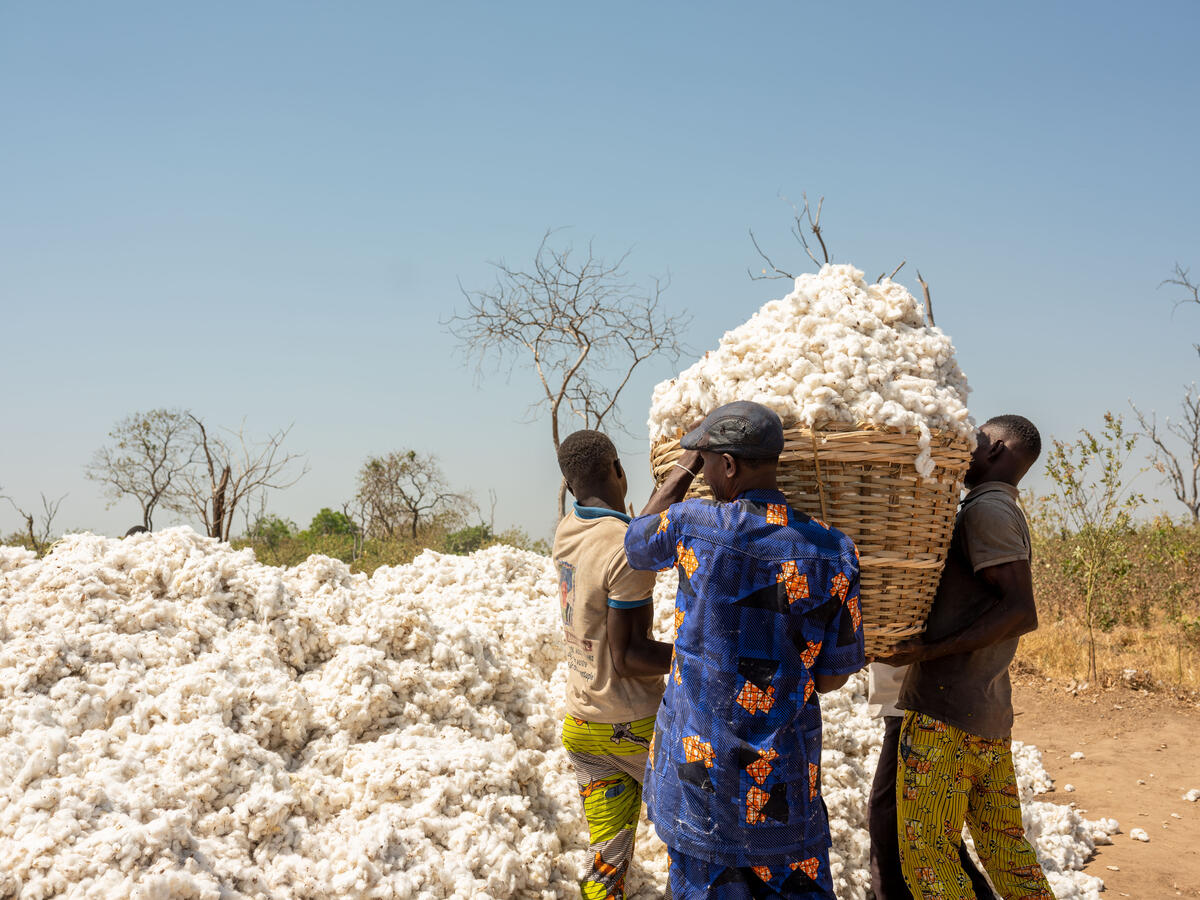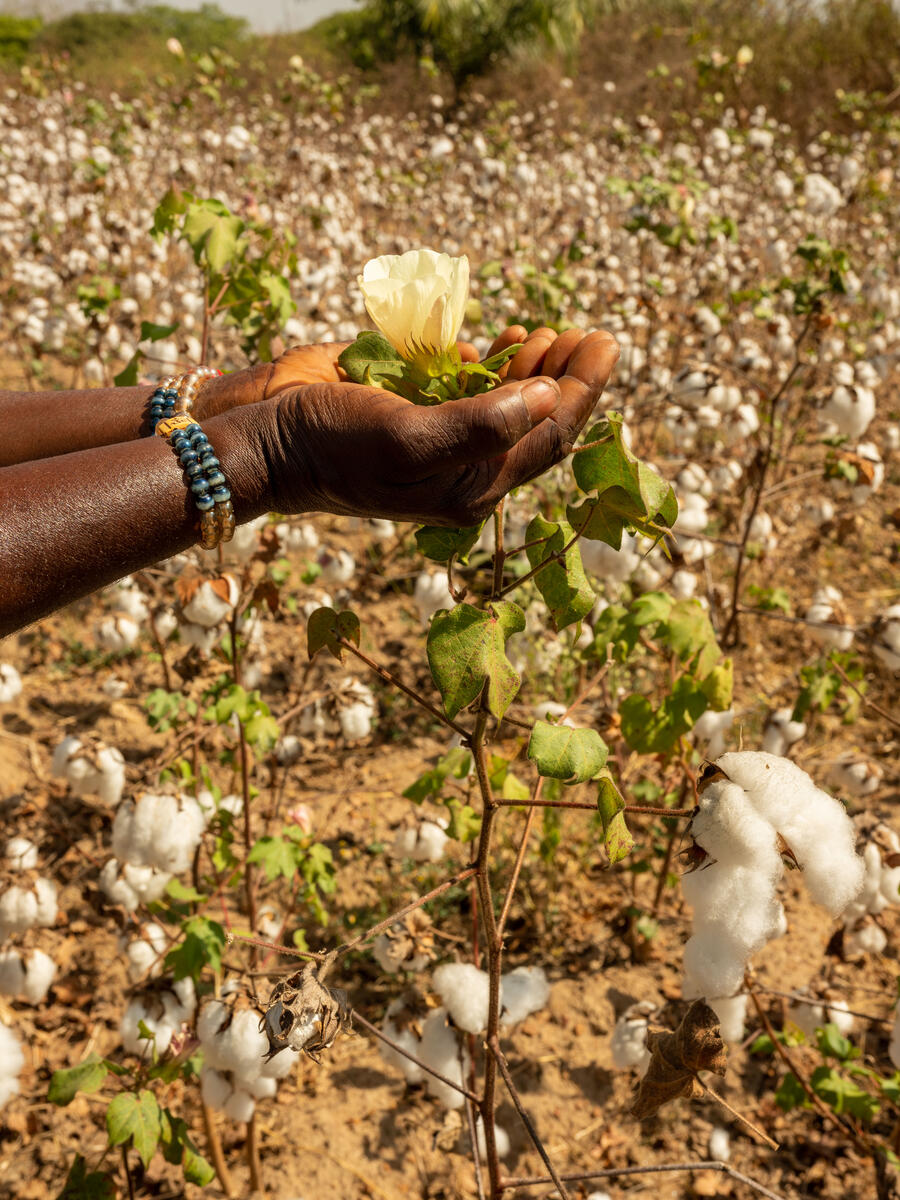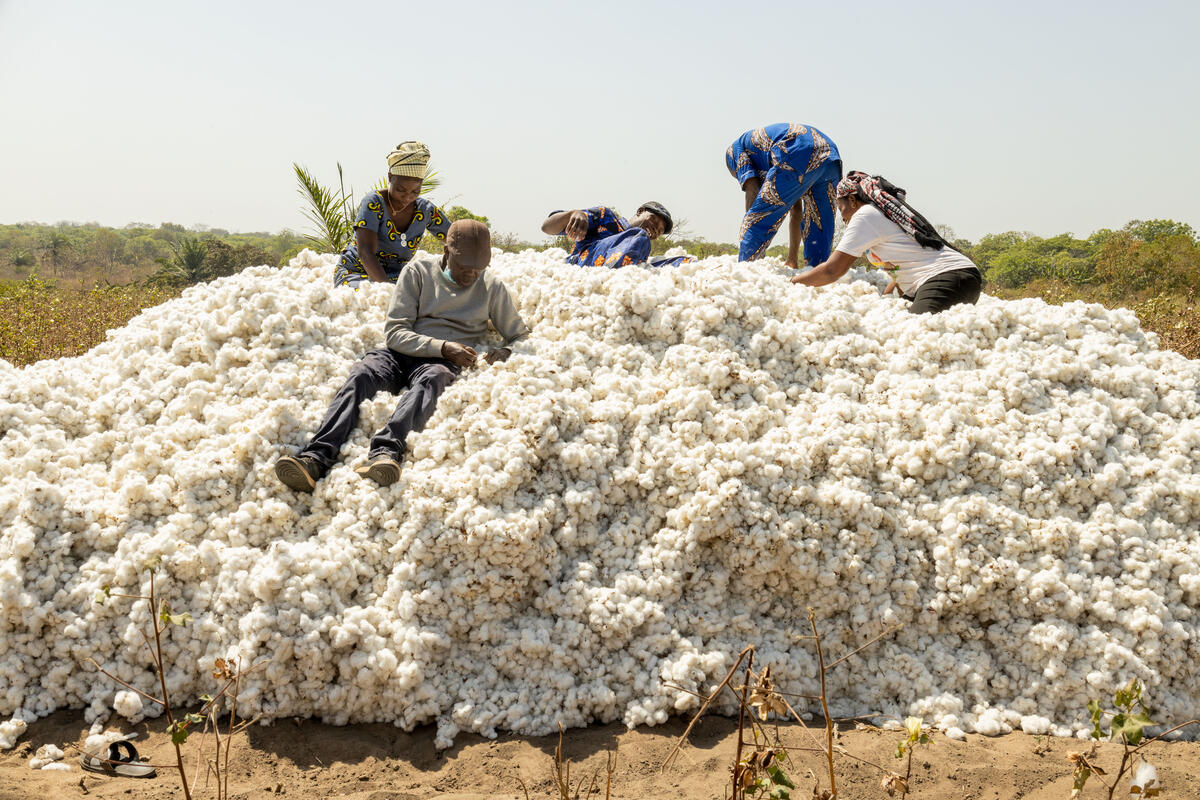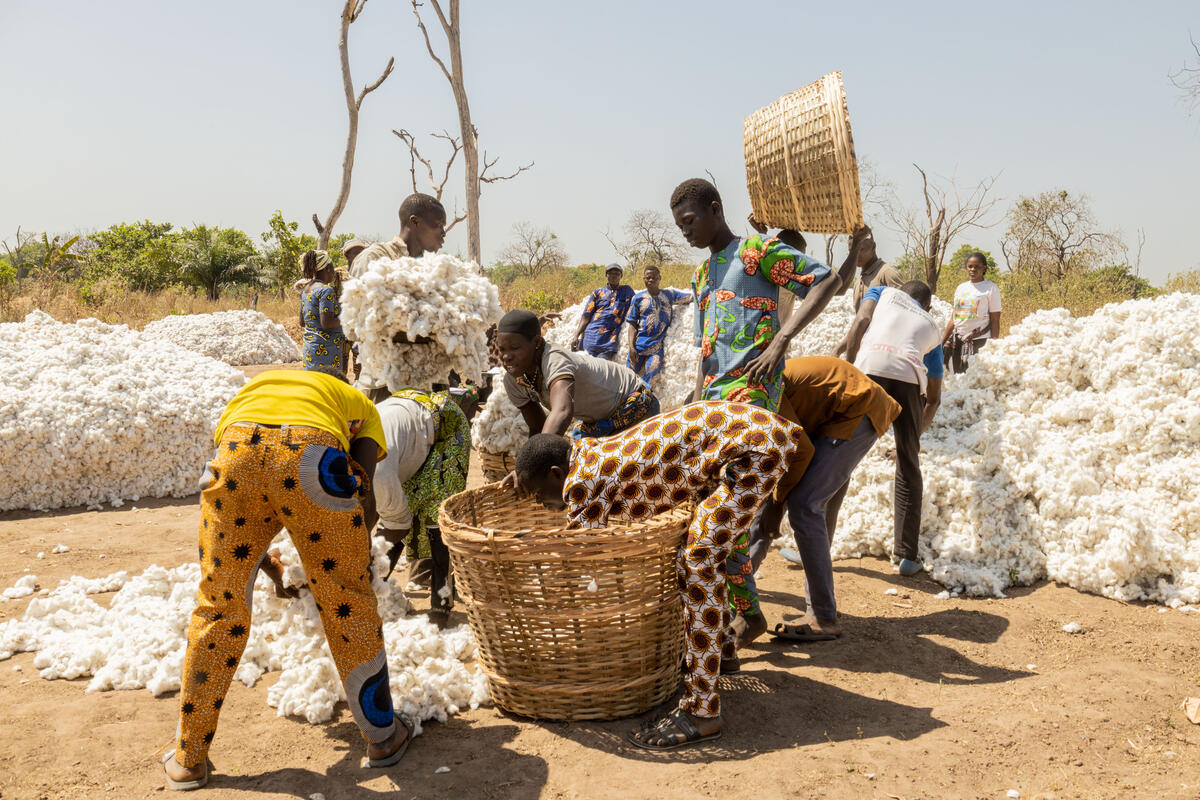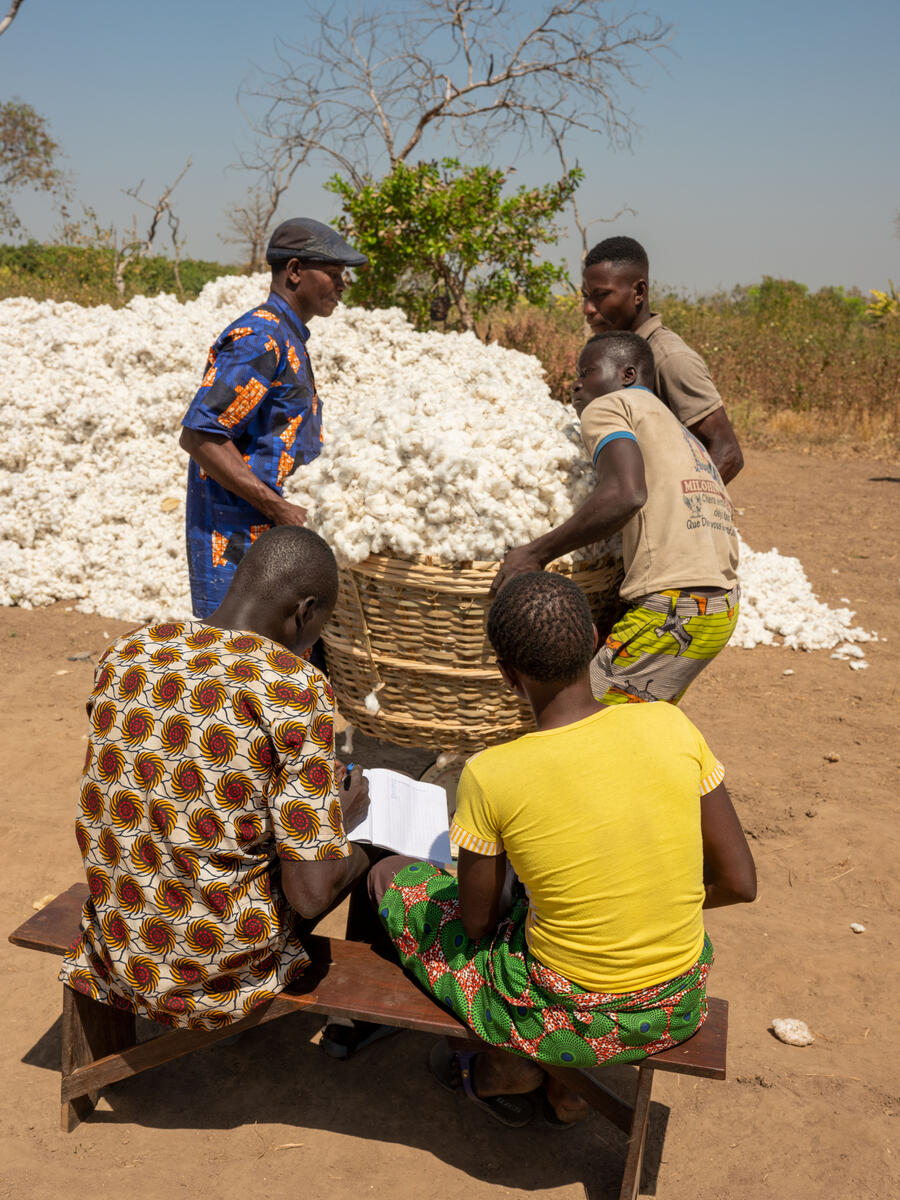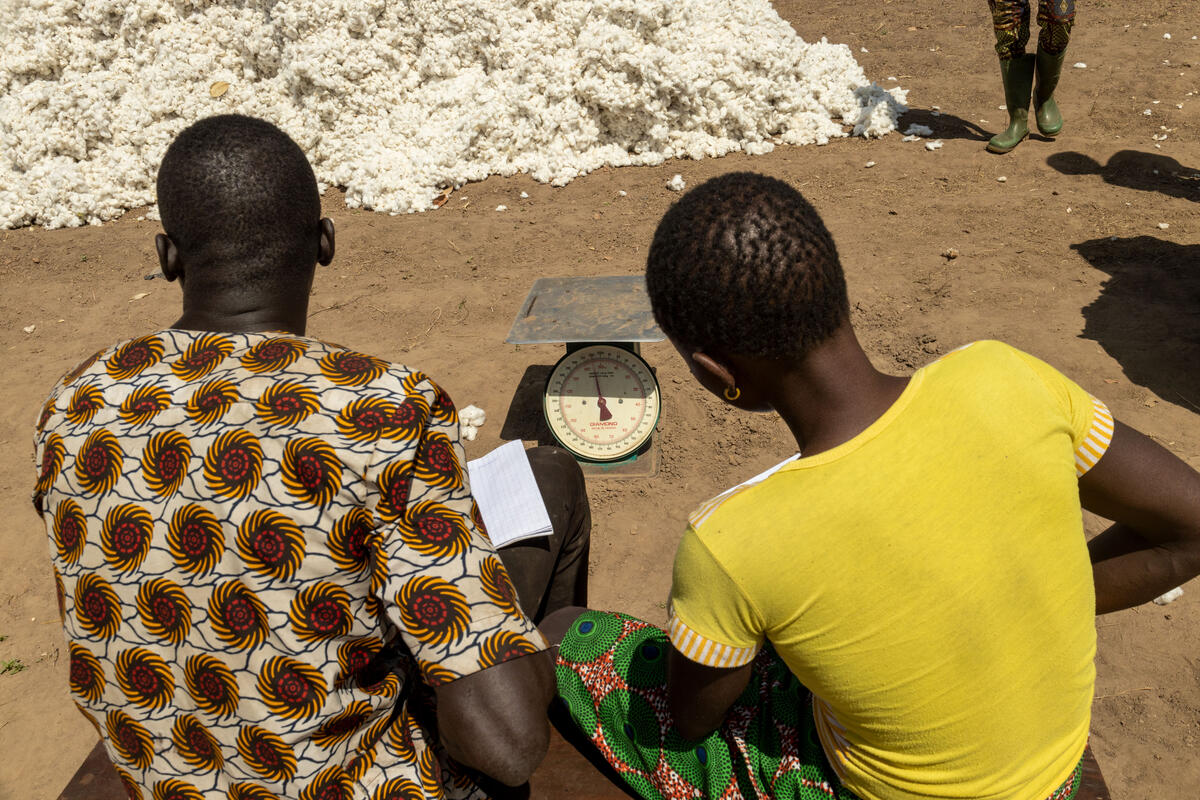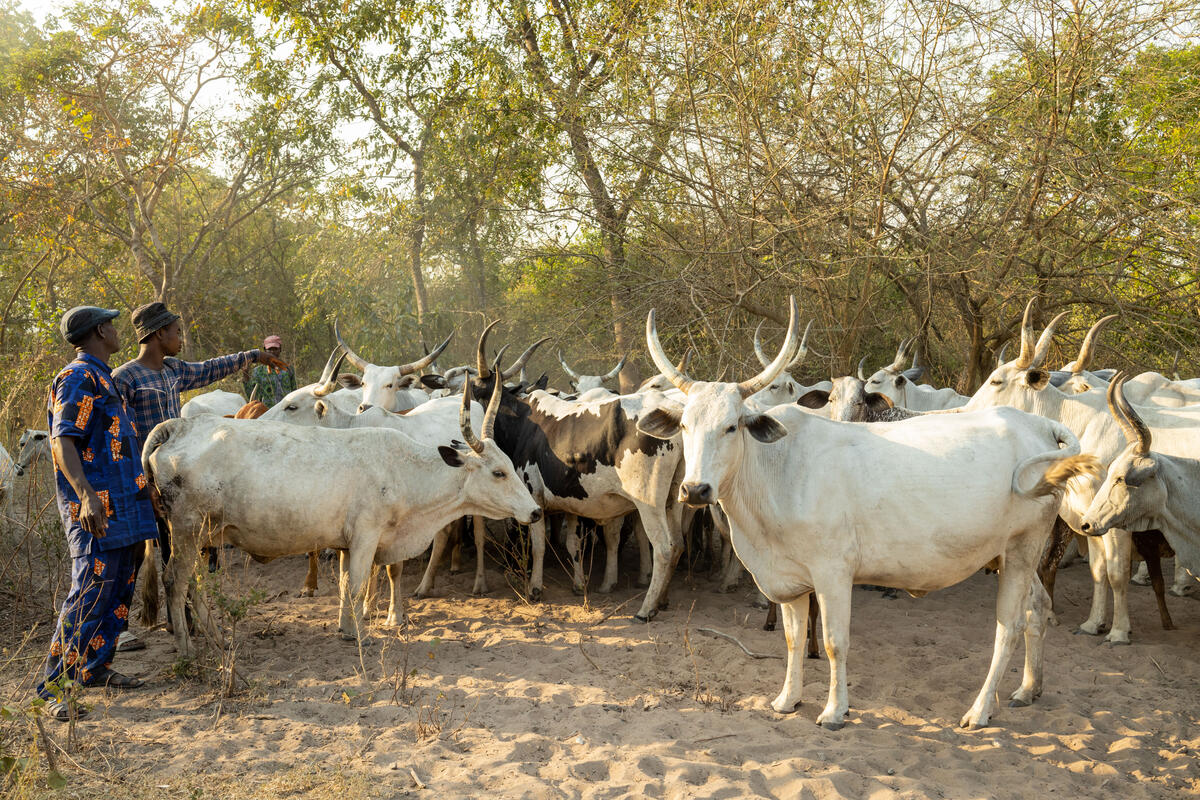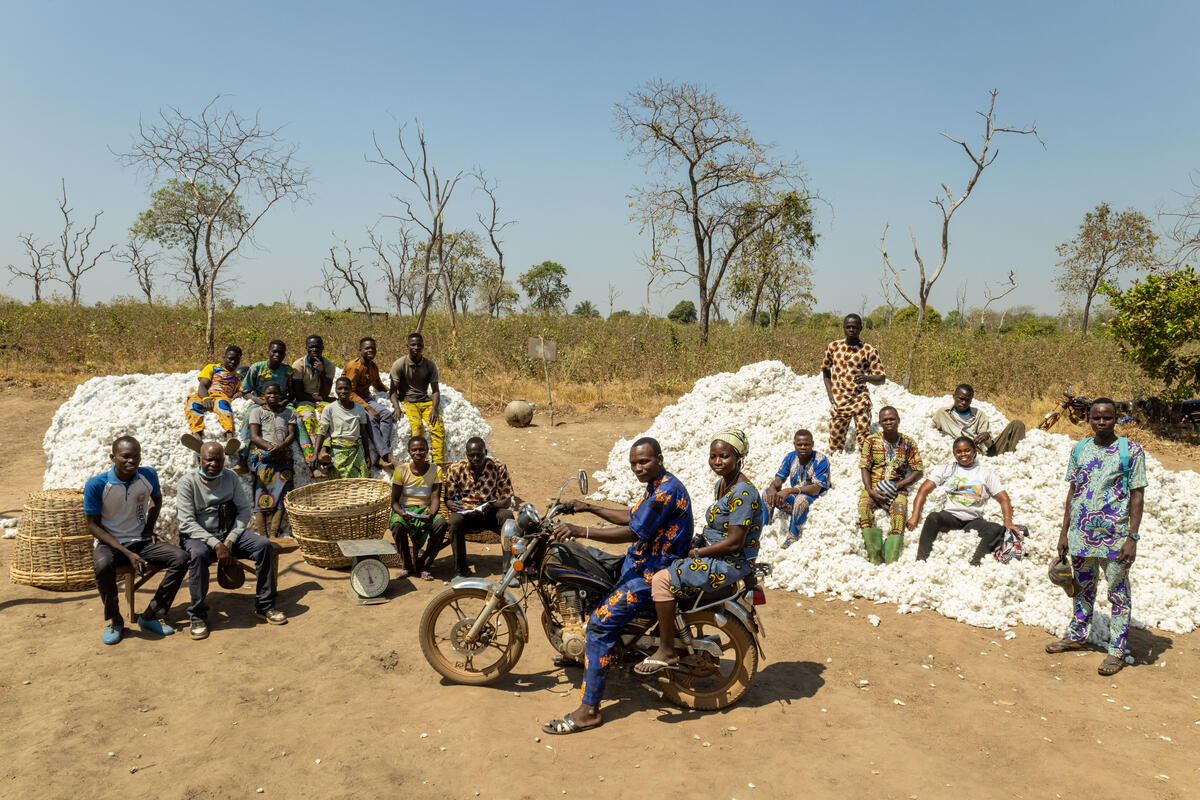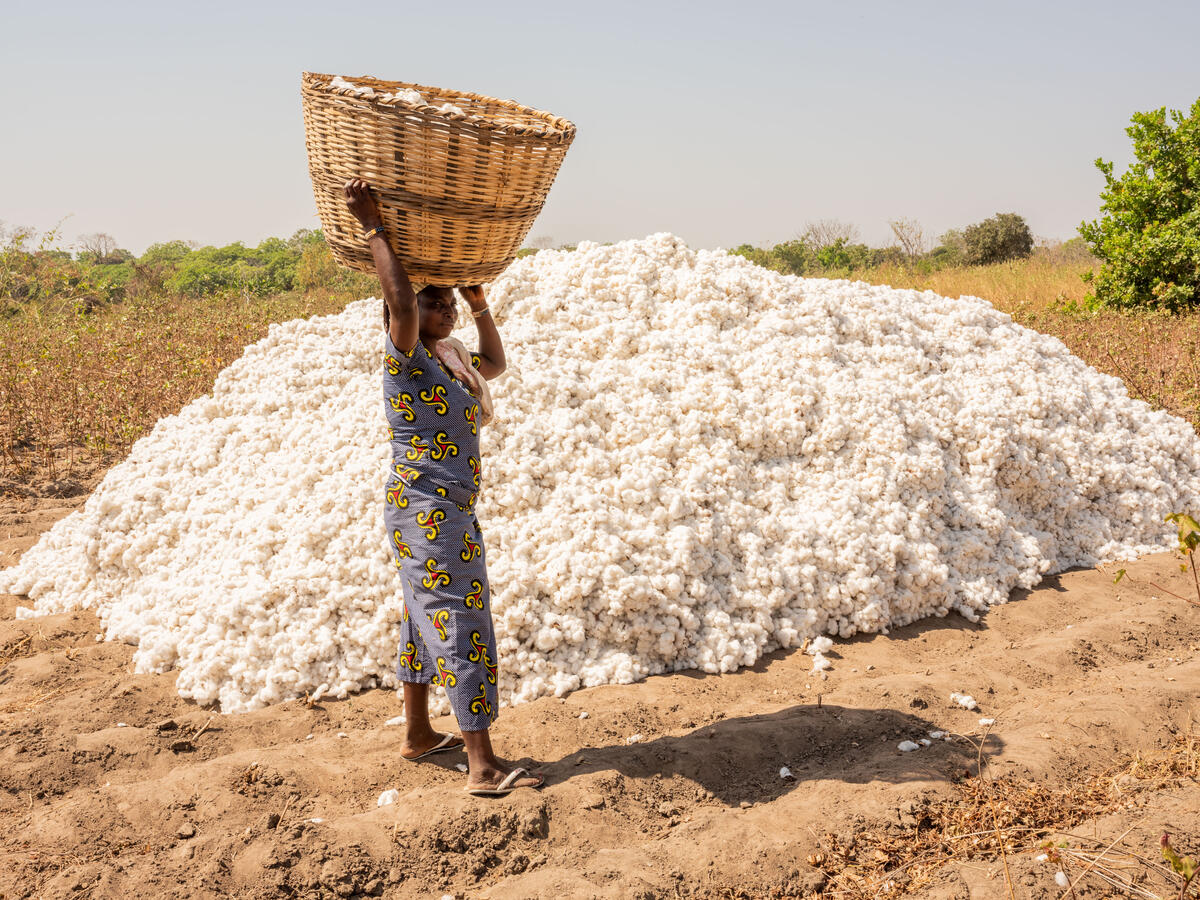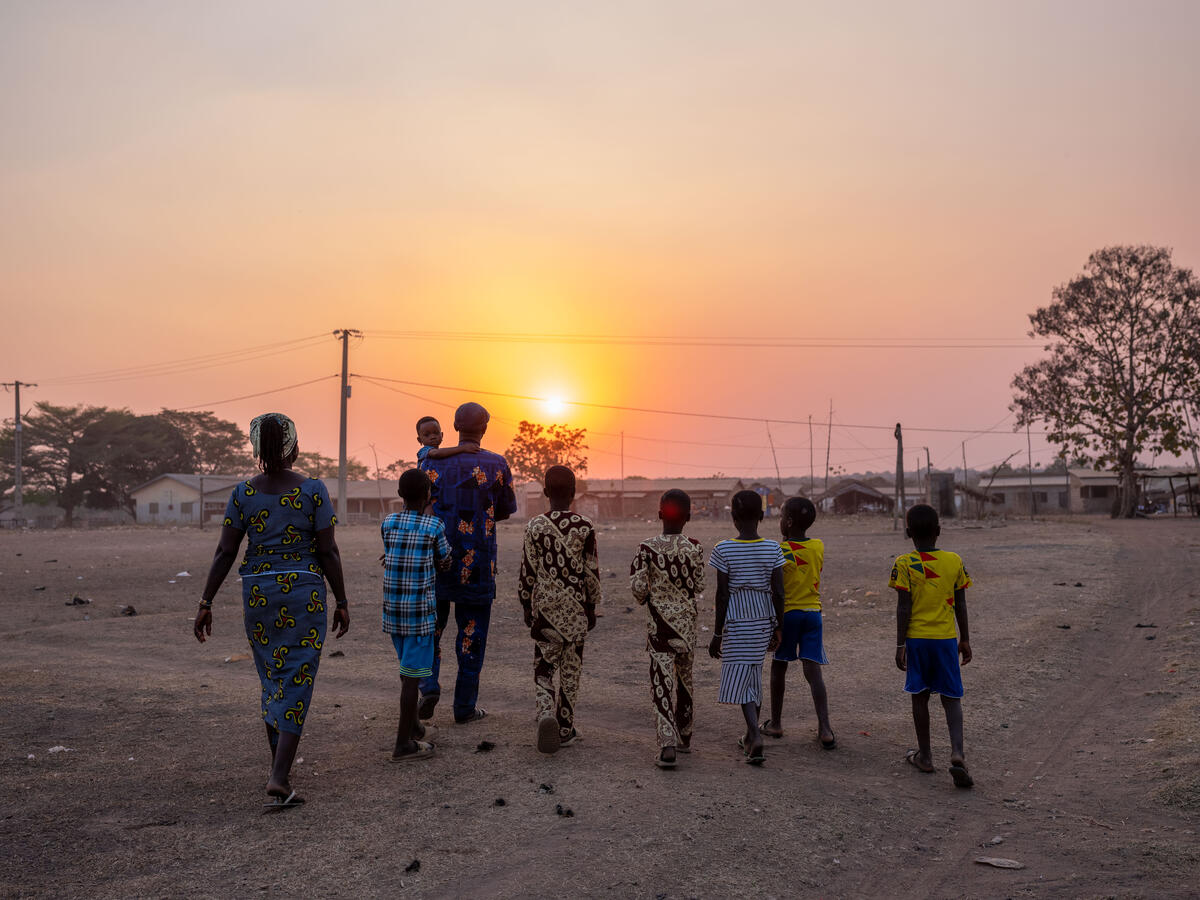Documenting Cotton Communities in Benin
In partnership with Textile Exchange, Lindokuhle Sobekwa explores how organic farming has empowered cotton communities in Benin
Benin is one of the leading producers of cotton in the African continent. Textile Exchange, a global non-profit driving a positive impact on climate change across the fashion, textile, and apparel industries, reports that in 2020/21, Benin accounted for an estimated 0.6% of global organic cotton production, involving approximately 6,621 farmers across the country.
Earlier this year, Lindokuhle Sobekwa traveled to Benin during harvest season to document how organic farming has transformed cotton production and how it has become intertwined with the lives of the farmers and families.
One of the places that he visited was the town of Glazoué in the country’s central Aklampa district. There, he followed the story of Paul Leode and Elisabeth Degbohoue, who grow cotton in rotation with pigeon peas, peanuts, sesame and manioc. They work using an organic agricultural system in order to avoid chemical inputs.
“While cotton supports the livelihoods of half the population in Benin, organic farming was long seen as going against the grain, and women left out of the conversation,” Textile Exchange explain.
“Recognizing the value that an alternative approach to agriculture could bring to local communities, agronomist Professor Simplice Davo Vodouhe started the Beninese Organization for the Promotion of Organic Agriculture (OBEPAB). In 1996, it began training farmers in an organic, gender-inclusive model, with support from Pesticide Action Network UK (PAN UK).
“This hands-on approach, based on in-field training, has since put the learning in the hands of farmers while also understanding and addressing their needs — setting them up for long-term resiliency and independence.”
“My approach was to see the impact organic farming has on Paul’s family, like many families who do cotton plantations in Benin and benefit from it; I got to see how much of a big role it played in his family,” Sobekwa writes. “Through cotton farming, he managed to build a home for his family; he has his own cattle and took his kids to school. He also employed many people from his community to work on the farm. His wife runs a business when she is not on the farm. I was interested in how organic cotton is harvested in the field and from the factory until its distribution.”
In 2022, together with Magnum Photos, Textile Exchange launched Materials Matter, an annual competition calling on photographers to help recreate a visual narrative between textiles and people, place, culture, and nature.
Every year, photographers from around the world are encouraged to submit a story under the theme Textile Transformations. The jury is composed of leading figures from the fashion and sustainability industries, activists, and two Magnum photographers each year. Winners receive a commission from Textile Exchange as well as mentorship from one of the participating Magnum photographers, with the intention of enriching their creative development and career progression.
The project is about “altering our attitude towards everyday items,” Textile Exchange explains. “All while providing a springboard for emerging talent to embrace visual storytelling the Magnum way.”
Applications for this year’s Materials Matter: Textile Transformations are now open. Emerging photographers are invited to tell the visual stories that take place when fibers and materials are cultivated, created, spun, woven, sewn, loved and cherished — gaining cultural and emotional significance through the journey.
The winner will receive a commission to the value of £8,000 for Textile Exchange to document the stories behind some of its members as well as a mentorship with a leading talent from Magnum’s network of photographers.
The runner-up will receive a commission to the value of £5,000 for Textile Exchange and coaching sessions with a Magnum photographer and the Magnum Photos Education team.
The winning entries will also be showcased in an original exhibition at the Textile Exchange Conference 2024 in Pasadena, California.
Find more information and start your submission here.


